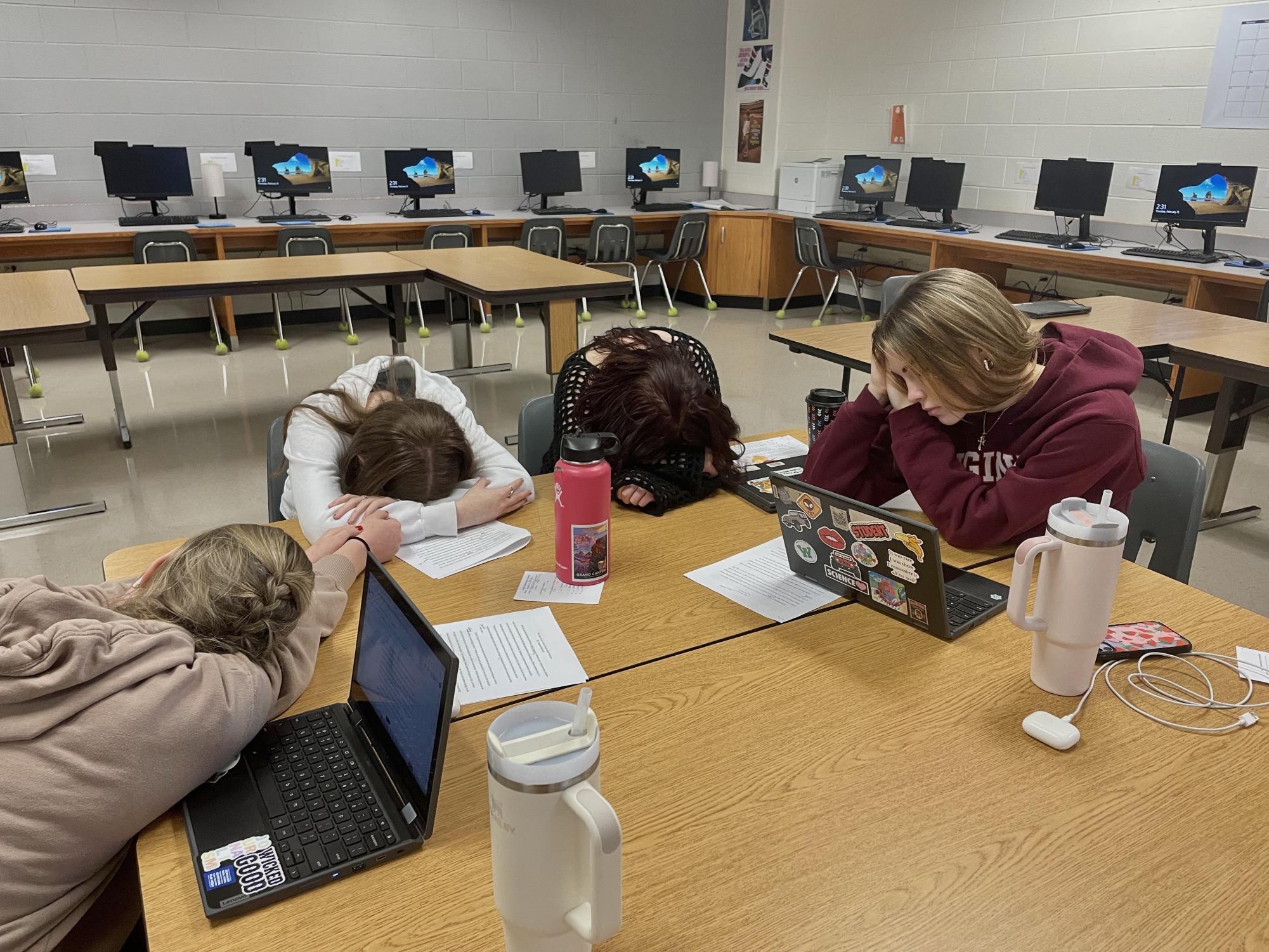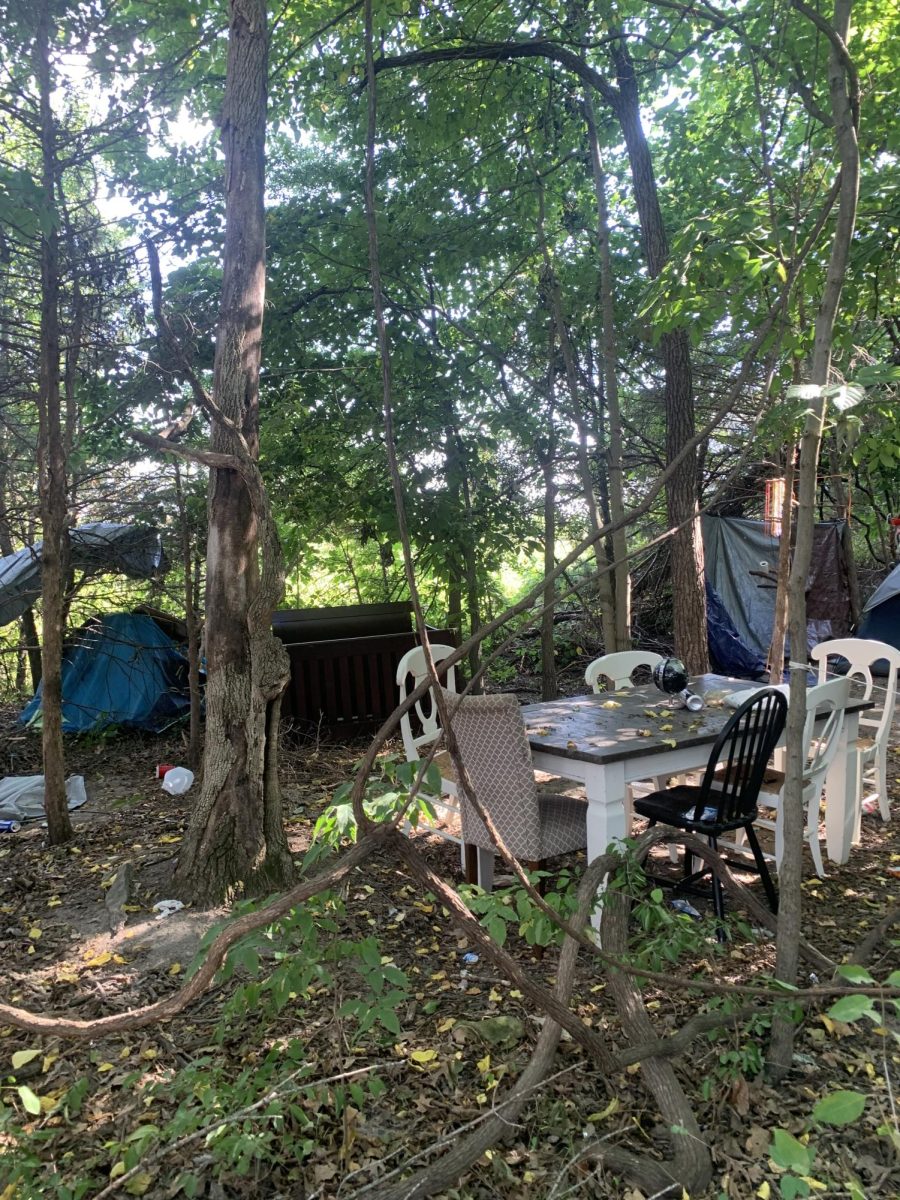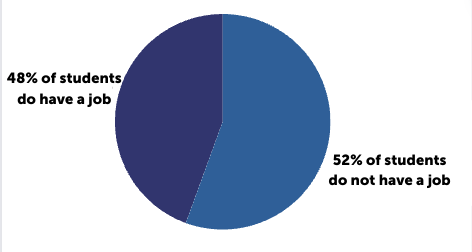Something high schoolers hear all too often is to go to bed earlier, wake up earlier, or to “stop being lazy.” This is easier said than done. Do teenagers even have control over when they feel tired? If they sleep through their alarm, is it intentional? Perhaps there is an uncontrollable force that makes them sleep in, stay up late, or feel tired all day.
The changes the body experiences over a 24 hour cycle are called circadian rhythms. Each organ within the body has its own circadian rhythm, but they are all connected by one “master clock,” a large group of nerve cells in the brain. This controls an organism’s innate sense of time based on outside factors, such as sunlight, food, stress, and hormones. When it gets dark outside, your body takes it as a cue to wind down and start producing melatonin, the “sleepy chemical.” For teenagers, they typically feel the most tired from 3 a.m. to 7 a.m., although some are not fully alert until 9 or 10 a.m.. Teens are generally most alert between 10 a.m. and 1 p.m. and get a slump from 2 to 5 p.m. Additionally, teens are most sleepy at 11 pm, according to the National Institute of General Medical Sciences. Because of this natural cycle, the teen’s body does not “want” to sleep or wake up until later than when their parents or teachers might say is acceptable.
According to the National Library of Medicine, the average person between the ages of 10 and 18 needs nine or ten hours of sleep each night. However, it is important to synchronize the hours of sleep you get with the projected length of each cycle. One cycle of sleep lasts roughly 90 minutes, so it is best to sleep in increments of that length, like seven and a half hours or nine rather than eight or ten.
During light sleep, the first stage in the sleep cycle, skeletal muscles are still active and breathing is regular. It lasts about one to five minutes and comprises five percent of total sleep. During deeper sleep, the body’s temperature and heart rate drops significantly. This stage, lasting about 25 minutes in the first sleep cycle and increasing in time with each following cycle, is when memory consolidation happens. Without deeper sleep, a person’s procedural and declarative memory are not stored properly, meaning that anything studied previously will not be retained.
The third stage is the deepest, non-REM sleep. This stage is the hardest to wake up from, and some people are not awoken even from loud noises of more than 100 decibels. People who wake up during this stage of sleep can experience mental fogginess, or sleep inertia, for 30 minutes to an hour after waking. During this stage, the body repairs muscles, bones, soft tissue, and the immune system. Sleepwalking, night terrors, and bedwetting also occur in this stage.
The final stage of sleep is called REM, or rapid eye movement sleep, named such because all skeletal muscles are relaxed except for those controlling the eyes and breath. Dreaming occurs at this point and it is not considered restful sleep. Brain waves during REM are similar to when a person is awake, meaning that it is easiest to wake from this stage, and many people will wake spontaneously and almost immediately become alert. As REM starts roughly 90 minutes into the cycle, it is best to sleep in 90 minute increments to wake during REM and be most alert as a result.
Understanding the body’s natural cycles and sleep stages can help high school students take the most efficient care of their minds and bodies. Doing so may mean choosing to sleep instead of studying an extra hour to ensure that your memory of the content is stored properly, or sleeping for seven and a half hours instead of eight, even though you would be getting “less” sleep. Dedicated athletes can prioritize quality sleep to ensure they are repairing their bodies after a difficult game or practice.
Accepting that you do not have ultimate control over your body, especially in a time of physical and mental change, takes the shame off of teens when their bodies do not function in the timeline that they think it should. Above anything else, teenagers can learn to be kind to themselves, and their bodies, and adjust their schedule based on what is best for them from a place of self-respect and understanding of the science behind their sleep.















